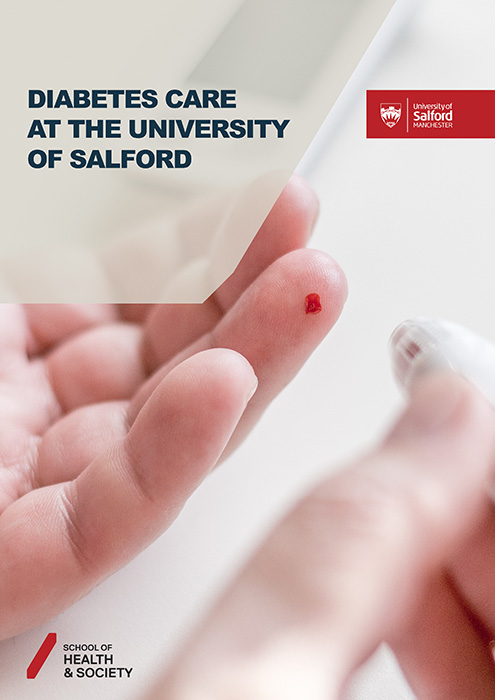We find out that a course at The University of Salford aims to provide a balance between theoretical and clinical skills and develop participants’ levels of critical enquiry, so you can deliver high-quality evidence-based care to people with diabetes
This analysis from The University of Salford provides some fascinating background to the topic of diabetes, including the phenomenal fact that in the UK as elsewhere in the world, the prevalence of diabetes has – according to the WHO and the IDF – reached epidemic proportions and is projected to rise to 552 million by the year 2030, rising to a staggering 642 million by the year 2040.
Unfortunately, there are irreversible micro-vascular complications from diabetes resulting in damage to the eyes (retinopathy), the kidneys (nephropathy), the nerves (neuropathy) and macro-vascular complications, for example. While the continued decline in funding growth is unlikely to meet demand driven by an ageing population with chronic health conditions such as diabetes. The University Of Salford argues that health care professionals must be equipped with the necessary cutting-edge research-based knowledge, skills and confidence to empower people with diabetes to effectively manage their condition.
To help with this, The MSc in Diabetes Care at The University of Salford is offered and will enable you to deliver high quality, evidence-based care to empower people with diabetes to self-manage their condition, for example.
In terms of what people say about this programme from The University of Salford, one example comes from Dan Howarth who explains how invaluable the course was to him, which he entered with some knowledge of the subject: “The timetable was well thought out, helping me to provide excellent care for people with diabetes, bringing together local experts to help teach the group. I felt supported by experts at The University and studying for my MSc at Salford has already sparked a new passion – I am thinking about my next steps in study.”
Finally, we discover that the OneCPD, Salford’s Continued Professional Development regularly runs conferences, which are ideal for updating knowledge, networking and keeping abreast of the latest policy, practice and research developments in the field. These are detailed here, and I encourage you to take the time to see what they have on offer. The last word goes to Hamad Obeid who says that the programme has fantastic lecturers, student tutors and course facilitators.
“Their passion and knowledge are motivating. I strongly recommend this programme to any person interested in increasing their understanding about diabetes and gaining insight into becoming an excellent diabetes educator.”


